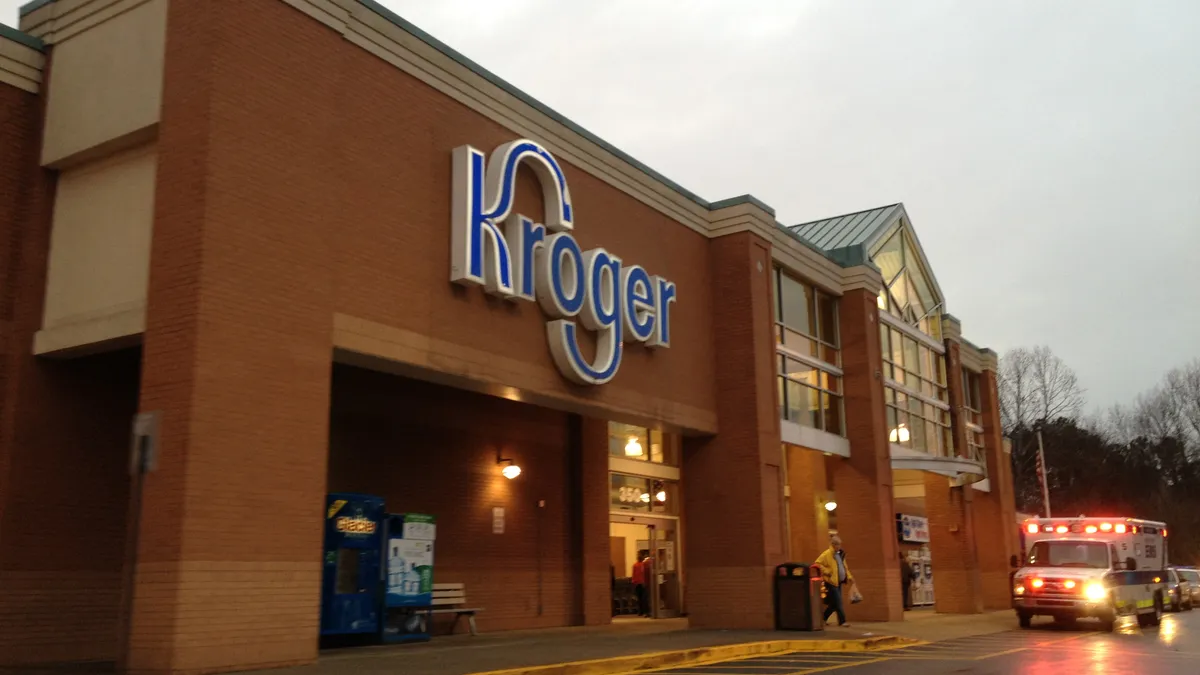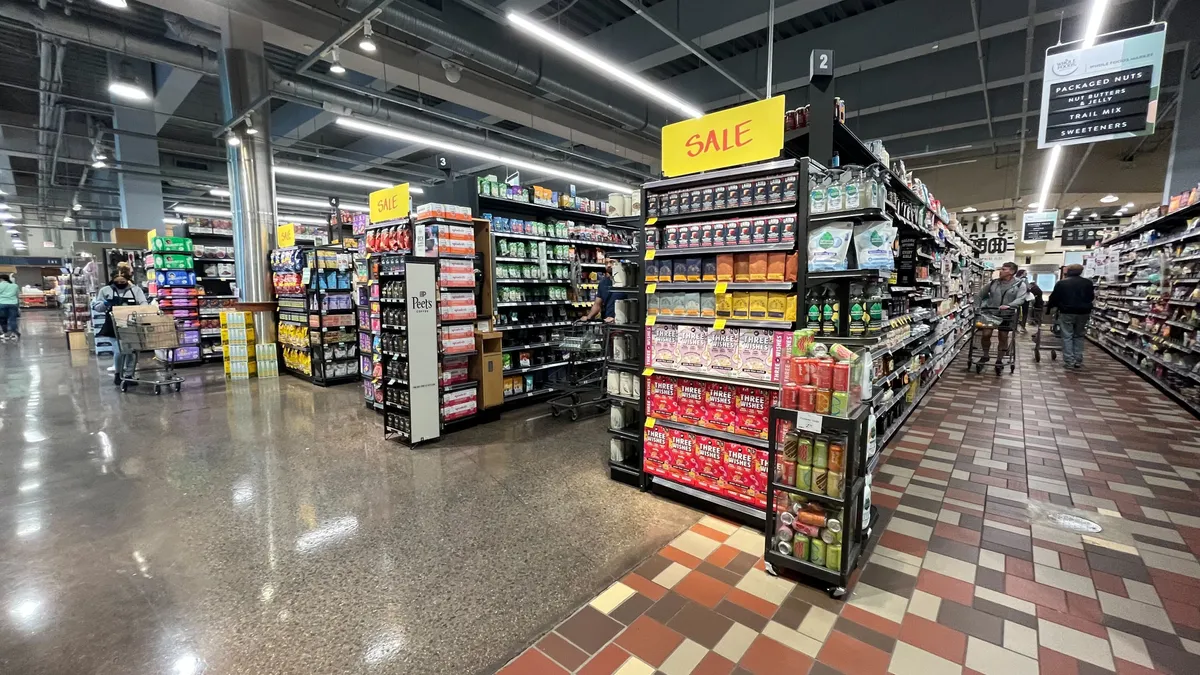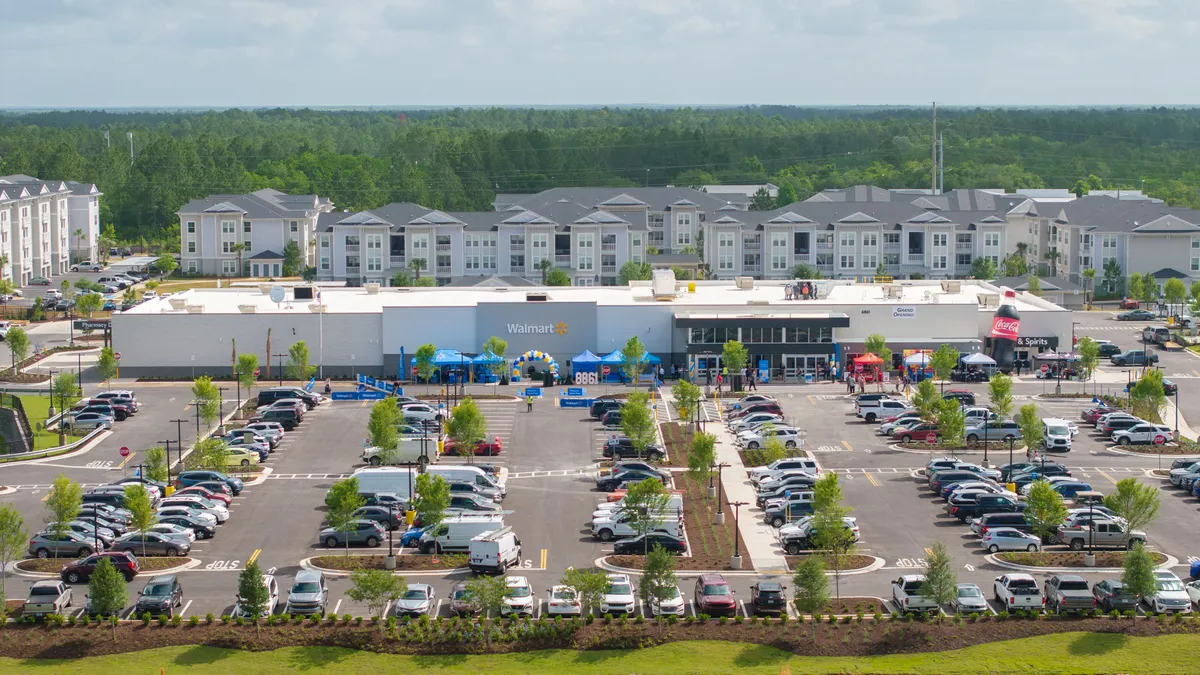Dive Brief:
- In a rare on-air interview, Kroger CEO Rodney McMullen told CNBC that despite a recent downturn in its stock price, the company remains focused on the long term. This month, Kroger’s stock has fallen 24% and is down 35% on the year.
- McMullen also told the network he thinks Amazon is a “good fit” for Whole Foods, and that the acquisition announcement didn’t surprise him as much as it did others in the industry.
- Whole Foods’ stock, which had shot above the $42 per share offered by Amazon in anticipation of a competing bid, has tempered and hovers just above that amount.
Dive Insight:
Times are looking tough for Kroger, which cut its forecast by 10% in its most recent earnings report and saw same-store sales fall for a second consecutive quarter — following 13 years of uninterrupted growth in the key metric.
With more competitors adopting the same data and efficiency measures that Kroger has employed for years, the grocer may not have the competitive advantages it once did. Barclays analyst Karen Short wrote in a recent note that the retailer’s “tailwinds have all run their course.” Kroger is also facing pressure from discounters Aldi and Lidl, as well as a price-aggressive Walmart, which has taken aim at the grocer in recent months.
As if this weren’t enough, now Kroger faces the possibility of Whole Foods, whose sales Kroger has disrupted over the past several years, returning the favor by cutting into its margins with attractively priced natural and organic products.
Seeing the company’s performance waver as competitors and Amazon move in, Wall Street has pummeled Kroger recently, with the company’s stock down 35% on the year.
However, Kroger excels at playing the long game. Twenty years ago, the grocer struggled against a surging Walmart, whose stores were spreading like wildfire across the country. Rather than panic, over the course of several years Kroger steadily brought down its prices, increased its promotions and become more competitive.
In his CNBC interview, McMullen said this patient approach is still a core value for Kroger. “When we look at our long-term business model, we’ve always assumed the market is going to get more competitive,” he said.
Kroger has made investments in a range of areas, from store technology to data and distribution. Its ClickList e-commerce platform has been the crucial first entrant in markets across the country while its in-house data firm 84.51 continues to deliver valuable procurement and merchandising intel. The company likely expected the competition to catch up to it eventually. The question is, what will it do next?









